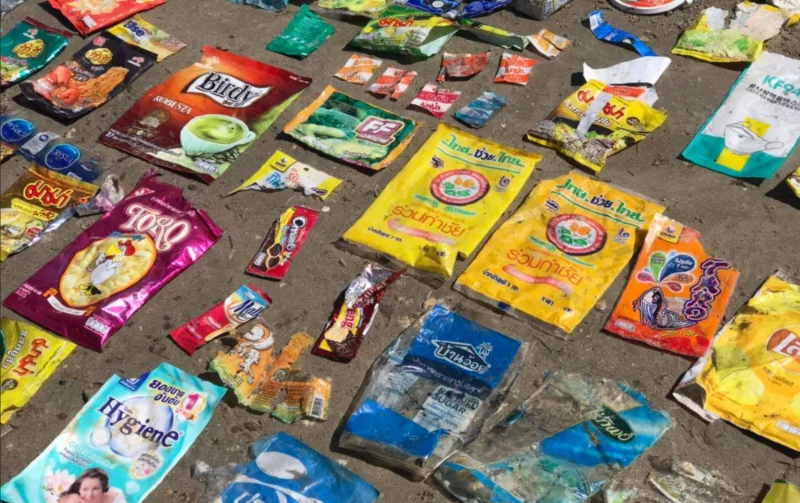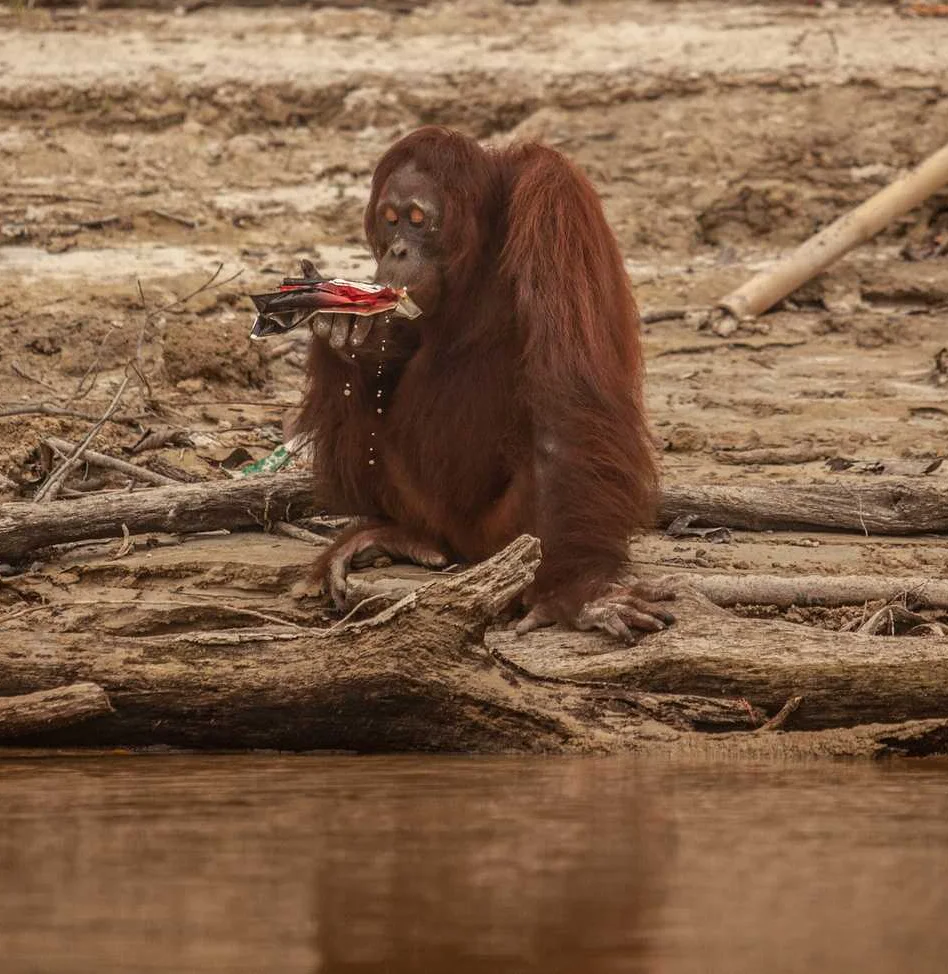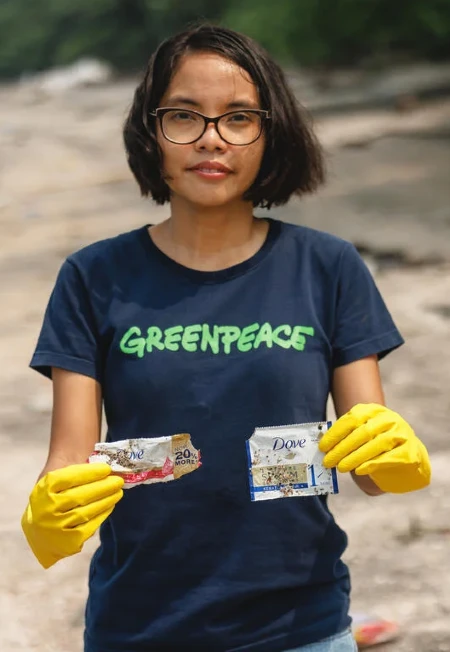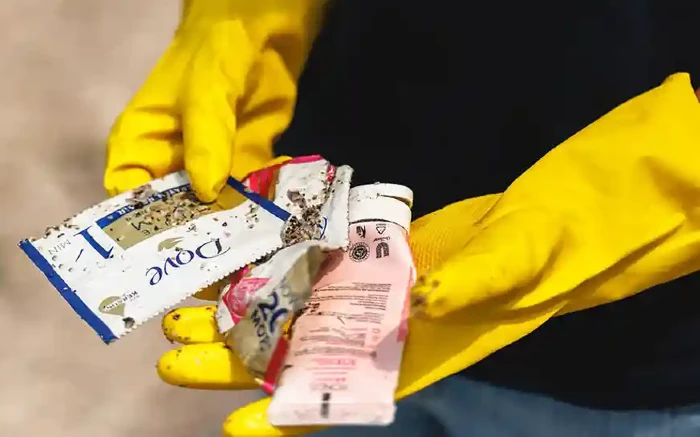Unilever, a titan in the consumer goods industry, operates in over 190 countries, touching the lives of billions with its vast array of products. Known for brands like Dove, Lipton, and Ben & Jerry’s, Unilever’s reach is vast, but so is its environmental footprint. The company produces an estimated 700,000 tons of plastic annually, a figure that starkly contrasts with its public commitment to sustainability. This discrepancy comes into sharper focus with recent findings from Greenpeace, suggesting Unilever is far from meeting its environmental promises.
Unilever’s Plastic Pledge and the Reality
Unilever’s pledge to halve its use of virgin plastic by 2025 was a cornerstone of its sustainability agenda under former CEO Paul Polman. The company, presenting itself as a leader in corporate responsibility, declared its intention to create a “waste-free world.” However, a new report by Greenpeace reveals a troubling picture: Unilever is on track to sell a staggering 53 billion non-reusable plastic sachets in 2023, a clear deviation from its eco-friendly commitments.
Sachets: A Symbol of Convenience and Pollution

Unilever’s India subsidiary, Hindustan Unilever Ltd (HUL), first introduced sachets in the 1980s. Sold in plastic pouches for just 1 rupee ($0.01), they appealed to low-income areas with small, sometimes daily, quantities of necessities and snacks. Presently, 70% of all shampoo in India is sold by sachets. Nestle and Procter & Gamble quickly entered the sachet market. 2 billion sachets containing shampoo, detergent, candy, coffee, and more are now sold daily. Annually, that’s enough sachets to cover the Earth’s surface.
These throwaway sachets, containing products like condiments and shampoos, are predominantly marketed in the global south, where they’re accessible to low-income consumers who often can’t afford to buy the larger versions popular in America and Europe. While Unilever asserts that sachets enable affordability, the environmental cost is immense.
In a corporate statement, Unilever said “in several of our markets, plastic sachets allow low-income consumers an opportunity to buy small amounts of products – often ones that provide hygiene or nutrition benefits like shampoo, toothpaste and food – which they would otherwise not be able to afford”.

These packets are notorious for contributing to land and water pollution, exacerbating issues like flooding and wildlife threats. In 2022 alone, Dove, one of Unilever’s leading brands, produced an estimated 6.4 billion sachets sold throughout Asia, primarily in India.
Nina Schrank, Head of Plastics at Greenpeace UK, criticizes Unilever’s actions, highlighting the contradiction between the company’s public image and its environmental impact.
“Unilever really are pouring fuel on the fire of the plastic pollution crisis. Their brands like Dove are famous for telling the world they’re forces for good. But they’re pumping out a staggering amount of plastic waste. It’s poisoning our planet. You can’t claim to be a ‘purposeful’ company whilst bearing responsibility for such huge pollution. Unilever has to change,” Schrank stated.

Greenpeace’s research indicates that Unilever is likely to miss its plastic reduction target by nearly a decade. The NGO urges Unilever to phase out single-use plastic and align its practices with the ambitious goals of a proposed global plastics treaty by making investments in more sustainable packaging options.
Unilever's History of Greenwashing Claims
This isn’t the first time Unilever has faced accusations of greenwashing. In the past, the company has been scrutinized for its environmental policies versus practices, raising questions about the sincerity of its commitments. Critics argue that Unilever’s actions often fall short of its pledges, particularly in reducing its plastic footprint and addressing broader environmental concerns.
Unilever maintains that tackling plastic pollution remains a top priority, citing progress in increasing the use of recycled plastic.
However, as Marian Ledesma of Greenpeace Philippines points out, each sachet contributes to health risks, environmental degradation, and social injustices.

“Each one of the many Dove sachets we found polluting beaches and waterways should be a badge of shame for Dove and Unilever. They can’t continue to flood countries like the Philippines with waste they know can be devastating … Each sachet represents the enormous health risks, environmental degradation, social injustices, and climate impacts caused by plastic production and the plastic life cycle. If Unilever want to be seen as a leader, they should stop being part of the problem. They have to show they’re serious and commit to phasing out single-use plastic, starting with sachets. And as treaty talks continue, they must turn their influence on the world stage towards helping push for this level of ambition to sit at the heart of a strong global plastics treaty,” said Ledesma.
Unilever’s involvement in the Business Coalition for a Global Plastics Treaty and its promise to explore alternatives to plastic sachets are steps forward, but the urgency and scale of the problem demand more immediate and impactful actions.
A Unilever spokesperson pointed out that, “In the past few years, we have rapidly increased our use of recycled plastic (PCR) in our global portfolio to 21%. We’re working on a range of solutions to reduce our use of plastic sachets, which are difficult to recycle, and replace them with alternatives. This is a complex technical challenge, with no quick fixes, and we are fully committed to working with industry partners and other stakeholders to develop viable, scalable alternatives that reduce plastic waste.”
More To Discover
- 9 Easy Swaps for Living a Plastic-Free Life Without Breaking the Bank
- Alarming Study Reveals Toxic PFAS Chemicals in ‘Green’ Children’s Products
- Bottled Water Industry Responds to Columbia University Study on Nanoplastics & They’re Not Wrong
- Microplastics Are Basically Everywhere: Meat, Water, Produce, Packaging, Seafood And More. But Can They Really Hurt Us?
The Ellen MacArthur Foundation recently agreed by naming Unilever as one of the businesses making the most progress to reduce its virgin plastic packaging footprint, while acknowledging that the company has a way to go.
Unilever stands at a crossroads: to continue on its current path, or to genuinely lead the way in reducing plastic waste. The company’s future actions won’t only define its legacy in sustainability, but will also have profound implications for the planet’s health and the fight against plastic pollution.



















